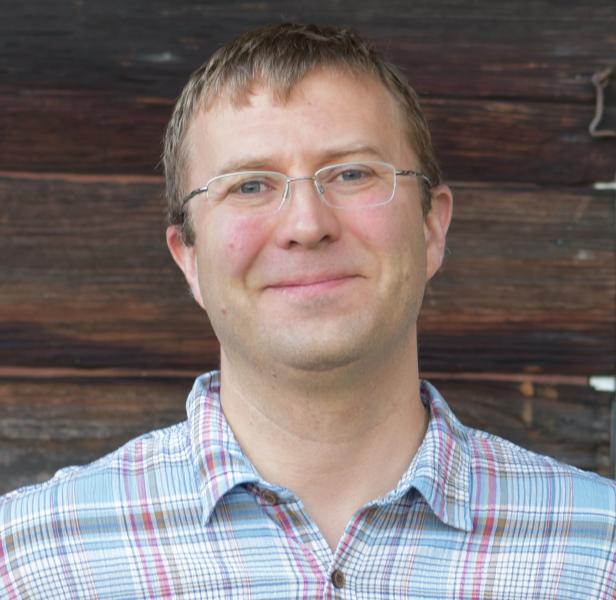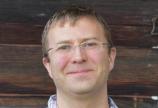Arctic research propels ecologist into the ranks of Fulbright Scholars
- Anne MacLaurin

Ecologist and ethnobiologist Dr. Trevor Lantz (environmental studies) has been named a Fulbright Scholar by the Fulbright Arctic Initiative for his Arctic ecosystems research. Lantz studies the rate and causes of Arctic environmental change and its consequences for northern communities. Using a combination of field studies, remote sensing, and collaboration with knowledgeable hunters and trappers, he will examine the vulnerability of Arctic coastlands to storm surges. His fieldwork will be conducted in the Beaufort Delta region of the Northwest Territories while collaboration with other Fulbright Arctic Initiative scholars will be in Nunavut and Finland.
Q & A
Can you first explain what kind of research goes on in the Arctic Landscape Ecology Lab at UVic?
"Members of my lab study how the Arctic environment is changing, why it is changing, and how these changes affect ecosystems and northern communities. We combine field studies, remote sensing, and collaboration with knowledgeable hunters and trappers. Our current research focusses primarily on three areas: vegetation change, permafrost thaw, and storm surges. Ultimately, our goal is to understand what the Arctic will be like in the future so that communities can make informed decisions."
Can you describe the Fulbright Arctic Initiative?
"The Fulbright Arctic Initiative is a new program that brings together scholars to conduct research in three key areas: Water, Health, and Energy. Over the next two years, program scholars will each pursue individual research projects and an academic exchange. This part of the program is the traditional Fulbright model. What's different about the Arctic Initiative is that it also brings together the scholars supported by the program to carry out collaborative multidisciplinary research. I will be working with scholars from Canada, the United States, Denmark and Sweden on health and wellness across the circumpolar."
What prompted you to apply to Fulbright as a scholar?
"I was particularly interested in the potential for interdisciplinary collaboration. Working with a group of collegial scholars who all share a commitment to the Arctic is a pretty exceptional opportunity. I just returned from our first program meeting in Iqaluit, Nunavut. It was an amazing experience; totally inspiring and energizing."
What is it about the far north that you find so intriguing?
"I got hooked on the Arctic during my PhD research in the Beaufort Delta Region. The Delta landscape is exceptionally beautiful, the people are welcoming and warm, and they have great taste in music. Arctic environments are also changing very quickly and there is an urgent need for research to understand what is happening."
What will you be working on specifically during the Fulbright Arctic Initiative?
"I'll be studying coastal flooding. More violent storms, rising sea levels, and loss of sea-ice are making Arctic communities more vulnerable to salt water inundation. During my Fulbright exchange, I will start a research project to assess the vulnerability of the Arctic to storm surges. This work will integrate information on elevation, winds, and sea-ice to map vulnerability and contribute to regional planning and decision-making."
"As a part of the Arctic Initiative I am also collaborating with other scholars on in the area of circumpolar health and wellness. Our research team includes experts in epidemiology, community wellness, urban planning, northern infrastructure, social impact assessment, and environmental change. Drawing on this diverse expertise, we will work to refine the socioecological model of health to reflect circumpolar realities and inform northern health policy."
Why is this important for UVic?
"Understanding environmental change in the north is critical because the Arctic has a significant impact on the global climate system. UVic has an emergent strength in Arctic research with scholars across campus making important contributions to our understanding of the regional and global consequences of northern environmental change."
What are the next steps in this project?
"In December the Health Research group will meet in Vancouver to continue working on a paper describing our model of socioecological health for circumpolar regions. In February, we will travel to Oulu, Finland to present this work to a range of stakeholder groups from that region."

